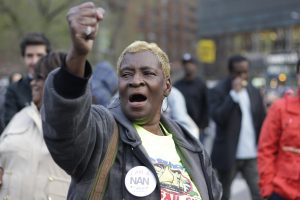The lack of access to justice for the average American is a national disgrace, and the blame can be laid on the special jurisdiction courts most pro se litigants find ourselves in. The judge may have refused to hear an argument or consider crucial evidence, and a pro se litigant is left believing the courts are unfair to people who represent themselves. Everyone working in the justice system is familiar with this perception, and some are working to fix it. But they’re all barking up the wrong trees. There are horror stories everywhere of people abused by the courts. Here’s one of mine:
We had a long-term lease but the landlord wanted us out. She’d tried to evict us four years earlier and failed. Despite being ineligible, I had managed to get a legal-aid lawyer on the phone for three minutes and he gave me a winning appellate case. So when the judge saw our paperwork, backed up by that case, the landlord never even got a chance to speak. So she got smart and hired a property management company to do her dirty work. This company had been in the eviction business for 20 years, and they knew how to get people out of a house. They used a well-connected local lawyer, a former magistrate court judge who was loved in every eviction court in the area. And they kept the landlord completely out of it, suing us in their own name. So this time was different. On the day of court, the judge told everyone in attendance not to bother arguing their cases. She read off a long list of excuses she didn’t want to hear, like job loss, medical bills, sick child or elderly parent in the home, dilapidated housing, whatever. If the landlord had seen fit to drag you into court, she said, there was a good reason for it and you were getting evicted. So the best thing for all concerned was for every renter to line up and “negotiate” with their landlord’s lawyer, or get kicked out today. We followed the company’s lawyer into the hallway for a chat. He said the landlord just wanted her house back and asked how soon we could move. We told him we were staying put until the lease ended. He said he could give us a couple of months. We said we were staying put until the lease ended. He raised his southern drawl and said, “Y’aaalllll wonna go ta trial tadayyy?!?” We said we did. We reentered the courtroom, finally got a chance to speak, and the judge shut us down. After listening intently to the lawyer for several minutes, she actually said to me a few words in, “You talk too much.” And then she signed an order that required us to either vacate the property in seven days or pay the landlord several thousand dollars.
This is the level of justice most self-represented litigants get, and it’s because our cases are often tried in special jurisdiction courts. These are courts that focus on a single issue, whether it’s a civil drug or juvenile court, traffic court, small claims court, family court, foreclosure or eviction court, or any other court of limited jurisdiction with its own rules and procedures. The judge oftentimes doesn’t even need to have a law degree, much less experience as an advocate. We paid the several thousand dollars that week, not to the landlord but to the court’s registry for a right to appeal. We took the case to a standard court with full jurisdiction, argued our case before a real judge, and won. But it should never have gotten that far. It should not have been necessary to put up several thousand dollars for a day in court, and many people would not have been able to do that. But here’s the thing.
Special jurisdiction courts may work for the judicial system and the big law firms with their multinational corporate clients, but they don’t work for real people whose lives are on the line in those courts. The rationale is that most people caught up in these issues are unrepresented, and they’d only be confused by the rules of “real” court. But the truth is that they’re designed to keep the hoi polloi out of full-jurisdiction courts, to dispense with our trivial little issues using a form of justice lite. Problem is, those rules — when understood and used properly — are where true access to justice lies. Those rules are what keep judges from using ouija boards or Tarot cards or mood rings to decide cases. (<– No disrespect to ouija boards, etc.)
There’s no reason whatsoever Americans can’t have rules of civil procedure that (1) protect the rights of litigants against arbitrary rulings and (2) can be read and understood by the average American. State legislatures and supreme courts change the rules all the time. Why can’t they change them to simplify the courts and make them truly work for us? We learned decades ago that separate is not equal. What we have in this country is a system of separate justice for self-represented litigants. Special jurisdiction courts need to be abolished. Each state should have a single trial court for all civil issues, an appellate court to review those rulings, and simple rules to govern each court. As American citizens, we deserve the same justice the big companies get. What do you think? Share in the comments below.



